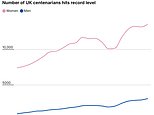‘The cars just turn them into mush’: can Britain’s toads be saved from traffic and terrible decline?
<p>Since 1985, the country’s toad population has almost halved, with hundreds of thousands killed on the roads each year. But many people are determined to protect them – including 274 dedicated patrol groups</p><p>It’s 7.30 on a Friday evening, but I’m not heading to the pub or putting on a film. Instead, I’ve caught the train to a market town in Wiltshire, where I’m meeting up with members of <a href="https://sustainablewarminster.co.uk/toad-patrol/">Warminster toad patrol</a>. These are volunteers who – like similar groups up and down the country – give up their evenings to protect their local toad population.</p><p>For the common toad (scientific name Bufo bufo) is becoming increasingly <em><a href="https://www.theguardian.com/environment/2025/oct/01/common-toad-is-becoming-uncommon-in-uk-study-shows">un</a></em><a href="https://www.theguardian.com/environment/2025/oct/01/common-toad-is-becoming-uncommon-in-uk-study-shows">common</a>. A recent study led by amphibian and reptile charity <a href="https://www.froglife.org/">Froglife</a> showed that the <a href="https://www.theguardian.com/environment/2025/oct/01/common-toad-is-becoming-uncommon-in-uk-study-shows">UK toad population has almost halved</a> since 1985. To see a creature that has been a stalwart of the British countryside – not to mention a prominent feature of literature and folklore – in decline is “worrying”, says Dr Silviu Petrovan, senior researcher at the University of Cambridge and lead author of the study. Toads “don’t require very specific conditions” and “should be able to live quite well in most of the habitats in Britain,” he says – so if even they are not managing to survive, “it kind of suggests that things are not as they should be”.</p> <a href="https://www.theguardian.com/environment/2025/oct/21/the-cars-just-turn-them-into
Read original
The Guardian




